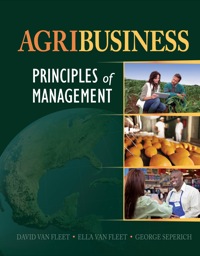The priestly procession entered the holy enclosure followed at a respectful distance by everyone else. Excitement and
Question:
The priestly procession entered the “holy enclosure” followed at a respectful distance by everyone else.
Excitement and apprehension were palpable; everyone felt that today would be the day. A quiet fell over everyone as the sky began to brighten and the sun began to “peek” over the horizon.
This scene or some variation of it was enacted at Stonehenge (England), Chaco Canyon (United States), Abu Simbel (Egypt), and Angor Wat (Cambodia) to name a few places. The ceremony had a simple objective: determine the time of solstices and equinoxes. Defined by the Earth’s orbit around the Sun, the solstices and equinoxes divide the year into four nearly equal segments. Today these segments bear the names spring, summer, fall, and winter, in order of their importance.
Why is “this order of seasons” so important? In hunter-gatherer societies, mastery of heavens was important for travel to and from their camps. In agrarian societies, mastery of the heavens also was vital to farmers’ existence. The spring equinox, around March 21, marked the end of winter and a time to consider planting. Planting too early or too soon could lead to crop failure, a meager harvest, and a very long winter.
Plans depended on the information.
In 2010, an old agricultural nemesis made its presence felt in Russia: drought. Rabobank, a Nether lands based bank, lowered its estimate of the Russian wheat harvest accordingly; and Russia’s President Vladimir Putin announced a ban on Russian wheat exports for the remainder of 2010. Kazakhstan and Ukraine announced possible export restrictions due to drought.
In spite of our world agronomic sophistication, drought can still manifest itself on the world stage.
To the average consumer, asking the price of wheat in Russia sounds like a silly question. However, when it affects the world supply of wheat, Russia’s price has consequences. The principles of supply and demand begin to manifest themselves, and suddenly potential price increases are possible for bread in the United Kingdom or pizza dough at Domino’s Pizza in the United States.
What about the gods? Well, the gods have been replaced by the science of economics. Stonehenge has been replaced by the Internet and the Chicago Board of Trade wheat trading pit. But the decisions are still made by the individual farmers.
QUESTIONS
1. How might an organization plan for an unexpected event such as a drought and its impact?
2. What would you do if you were the Kansas farmer? Why?
3. How does what the farmers do impact other agribusinesses?
Step by Step Answer:

Agribusiness Principles Of Management
ISBN: 9781285952352,9781285947839
1st Edition
Authors: David Van Fleet, Ella Van Fleet, George J. Seperich





